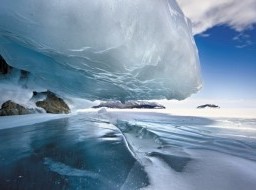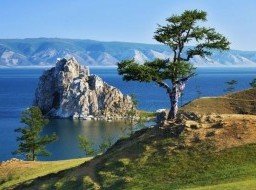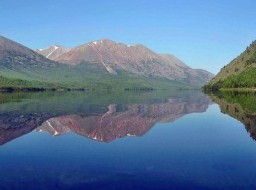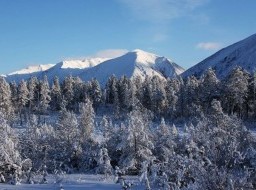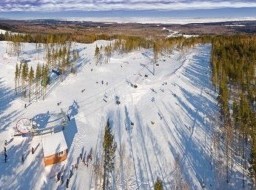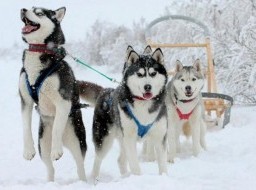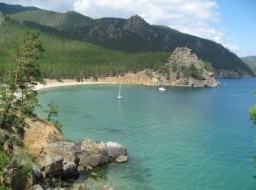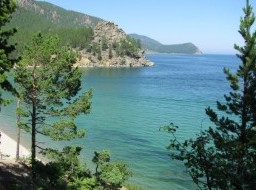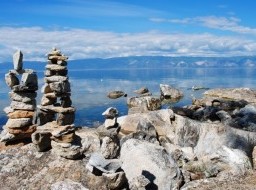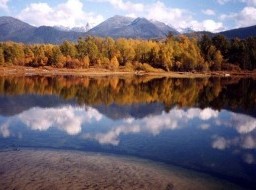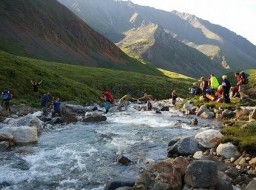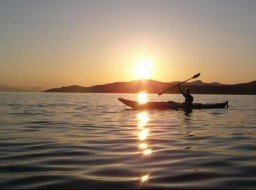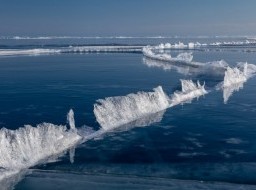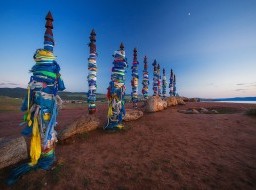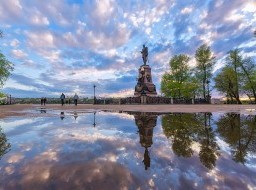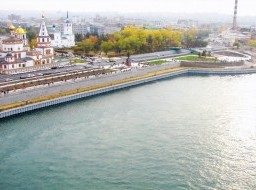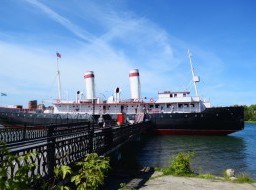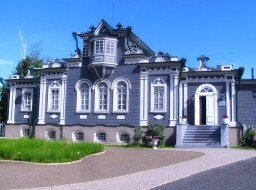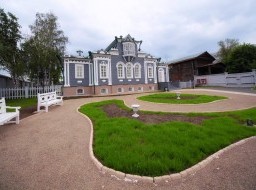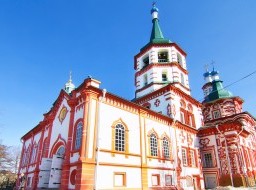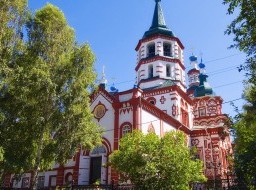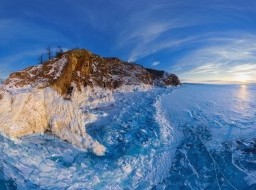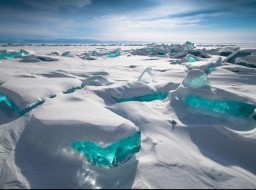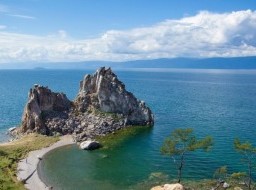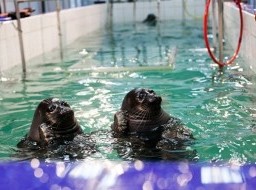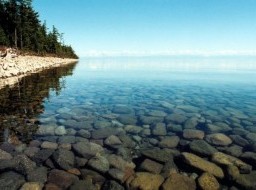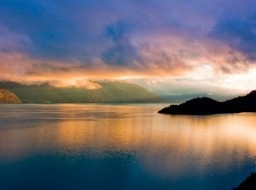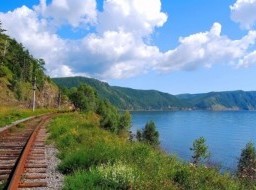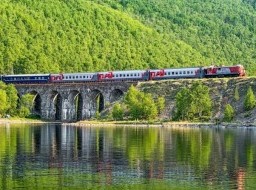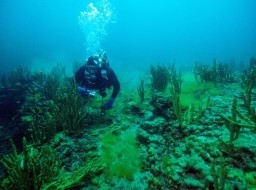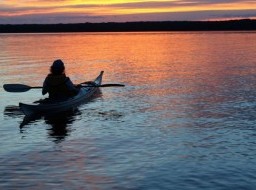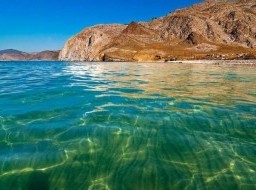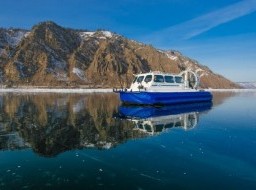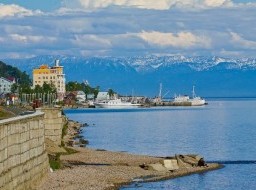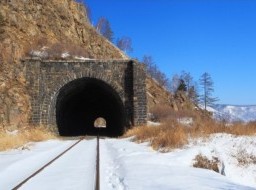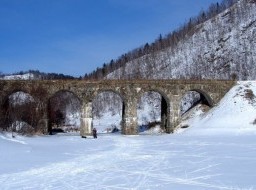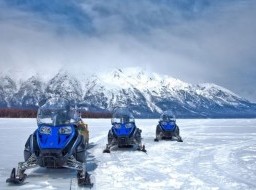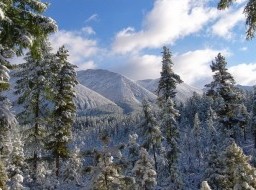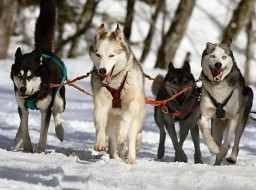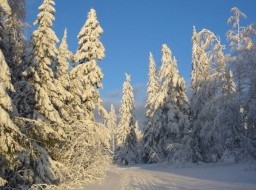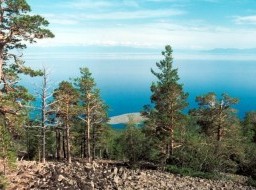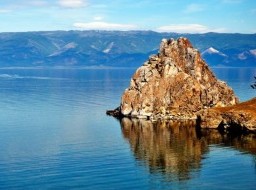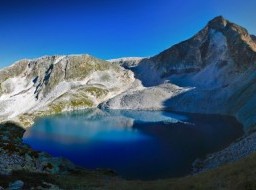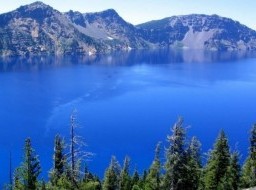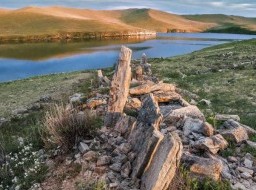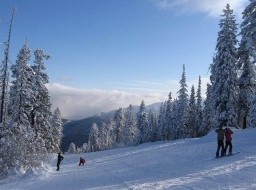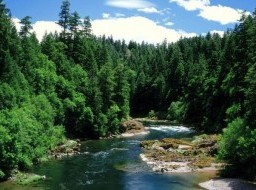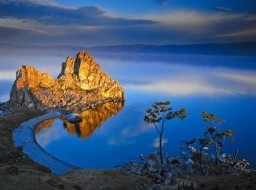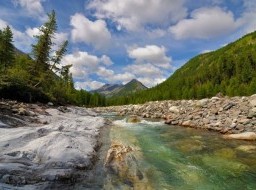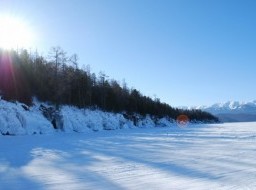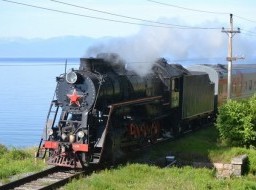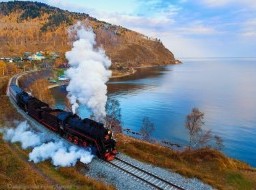Elovka valley
The external beauty of Elovka valley is primarily a combination of magnificent river, mountains and hills with their rich flora. The diversity of trees, shrubs, grasses and flowers that can be found on Elovka valley is hard to imagine. The Elovka river is one of the most promising rivers in the area abounding in most valuable fish which can become your potential trophy. The name of river Elovka comes from the word el – "a fir". This "flora" name are likely to reflect not only individual manifestations of Baikal areas, but also the astonishing internal state of people. Nature is very generous to Yelovka Valley. A necklace of coniferous forests, decorating the shore mountain chains, creates a unique beauty of landscapes, shelters animals and birds, and enlivens the surroundings. The pride of Pribaikalye is a belt of a dark coniferous forest - cedar, fir and spruce. Up this belt the slopes are covered with impassable brushwoods of trailing cedar, through which only bear trails run. Above them on the gentle sloping terrace there are Alpine grasslands with parterres and finally, snowcovered peaks. In contrast to European new woods the Baikal taiga has preserved trees of all ages - from young ones to 500-600 and even 800 year old giants. In the undergrowth of fir forests, on the former burnings and clearings, one can come across rich red bilberries and on the hillsides, fern thickets. Spruce and firewoods are the least in Pribaikalye. They grow mostly alongside cedar, larch and sometimes, pine trees. One of the most attractive wild areas for all kinds of travelers and adventurers, photographers as well, Yelovka Valley was named after a small river. 336 rivers flow into Lake Baikal and the Angara River is the only river that flows out of it. The picturesque mouth of Yelovka River is located approx 20 km from the Peschanaya bay on the western side of Lake Baikal, the deepest lake in the world. It has an elevation of 420 meters above sea level. Yelovka River is excellent and varied fishing, and the fish is very tasty. It is also known by different spellings and names throughout the world. These are the ones we know of. Often the ability to think of spirituality and psychology of nature is ascribed to poets. But let us dwell on the thoughts of a natural science specialist, ardently loving his Baikal region and Yelovka Valley: «Who has visited the taiga wilderness at least once remembers the overwhelming feeling of grandeur and unity with the pristine nature. Secular cedars and mighty pines, sometimes silent, then the stately rustling in gusts of wind sweeping the tops; the smell of wild rosemary and fir; gracious fooling with fresh mushroom; springs with crystal clear, almost icy water; bunches of blueberry and bilberry bushes with clusters of ripening berries in late summer; and in the winter – clean untouched drifts, snow clothing on shaggy branches of trees, sparkling in the day light, and at night making them look like a mysterious fairy in the bluish moonlight... All this revives the warmest feelings in the soul (and sometimes it simply makes us recollect we've got one)! And that is why when on walking holidays, or sitting by a tourist campfire or in a warm, winter hut well-wrought by cedar nut getters there appears a great desire to think about the eternal, the universe and the perfection of nature, about your place in this world, and even about other, distant worlds that are visible only as bright twinkling stars overhead, among the crowns of the taiga giants. And you always return from the taiga purged, with awakened gust of dreaminess and sense of pride for your region". Yelovka Valley is one of the most beautiful nature landmarks of Lake Baikal and a popular recreation site. |
|
